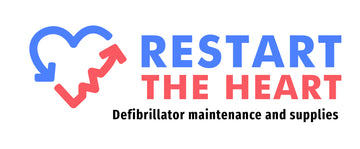Know If Cardiac Arrest Is Inherited in Today’s Article
Suppose a loved one of yours has experienced a cardiac event, including a heart attack, cardiac arrest, or death. In that case, it could make you question your chances of having the same issue. Research has demonstrated that if there is a family history of heart disease, you are more likely to develop it too!
But while genetics has a part to play, lifestyle can either trigger or negate the possibility of having a cardiac event. That said, it's important to get tested if your family has a predisposition towards heart disease and make lifestyle changes that support your overall health. Look out for these known causes while also keeping defibrillators handy in case of emergencies:
Huge Drops in Magnesium and Potassium Levels
Electrolytes are essential for keeping the body functioning properly, as they help to maintain blood pressure and a healthy heart. Magnesium, potassium, calcium, phosphate, sodium, and creatinine play a role in this process by helping control blood pressure and reduce the risk of cardiac arrest.
Certain people may be genetically predisposed to developing problems with their blood electrolytes and kidney function. This could increase the risk of heart issues due to electrolyte imbalances. Suppose you have family members with high blood pressure or kidney failure. In that case, it might be beneficial to look at the possibility of an electrolyte connection and make sure that you are eating foods full of these minerals. Taking this step could reduce your risk of developing similar issues.
Congenital Heart Problems
If your family line has a history of heart defects, you must talk to your doctor or healthcare provider concerning the risks of a heart defect. They can discuss if any tests need to be done to check for any issues and to determine if you are safe to participate in physical activities, such as high-intensity aerobic activities.
Fainting
Fainting episodes (also known as syncope) can be caused by various things, such as dehydration, overeating, tiredness, or sweating too much. They can also be passed down in families or a sign of a more serious heart condition. Suppose you or someone in your family has had unexplained fainting spells. In that case, it's important to get a proper examination by a doctor to ensure there isn't an underlying heart problem and to keep defibrillators nearby in emergency cases.
Latent Genetics
Approximately one out of six survivors of unexpected cardiac arrest have a pathogenic gene, such as a channelopathy or cardiomyopathy, contributing to the incident. These genes are responsible for almost 60 percent of the cases, and cardiomyopathies are responsible for 40 percent.
To Conclude
Cardiac arrest is not necessarily hereditary, but some things that put you at risk can be passed down from generation to generation. However, by leading a healthy lifestyle and getting tested for any heart conditions before they become serious, you can significantly lower your chances of suffering heart disease or other similar problems. Lifestyle changes, having medical tests and taking steps to prevent future incidents, and an AED (automated external defibrillator) on hand also help.
Buy AEDs from Restart the Heart
At Restart the Heart, we carry defibrillators, pads, and batteries for all trusted brands in the continent. Order now via 1300-818-443, service@restarttheheart.com.au, or our website!

